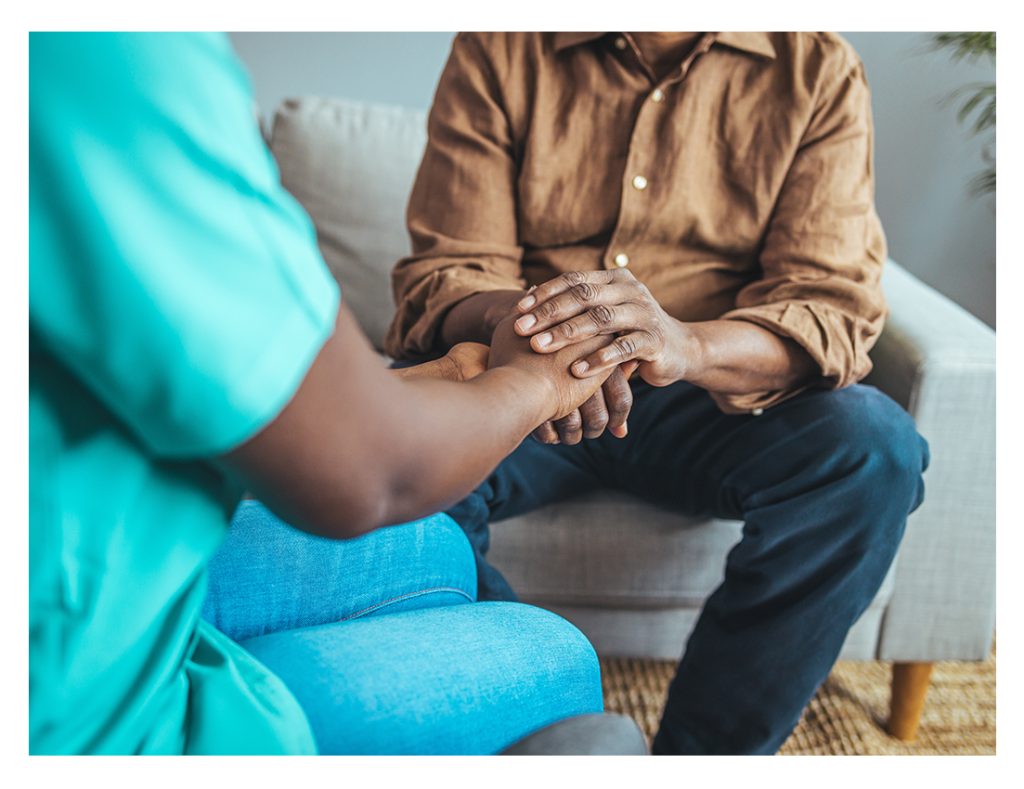Waldenstrom’s macroglobulinaemia is a slow growing form of lymphoma and many people will live for years, if not decades with it. However, there isn’t a cure and you may come to a point where you are told there are no more treatment options available to you.
It’s normal to feel a range of different emotions when hearing this news, as well as having questions about your future.
Here we’ll discuss what you can expect when your treatment options run out.
If your doctor tells you that you don’t have any treatment options left, it might mean that you have had multiple treatments before, and now there aren’t any medicines or therapies left that you can have. Alternatively, your Waldenstrom’s macroglobulinaemia could have stopped responding to treatment so that the available options won’t work anymore. Or it may be that you are not well enough to have any available treatment, which can be very harsh on the body.






Clinical trials can seem like a hopeful alternative when you are told you don’t have any treatment options left, as they are often testing new drugs that aren’t available on the NHS.
You doctor should always look into whether you are eligible to join a clinical trial, so if this is an option you are interested in, you should talk it through with them.
However, clinical trials have strict eligibility criteria and not everyone is able to join one. Your Waldenstrom’s macroglobulinaemia may have progressed too far, or any previous treatment you’ve had might mean you aren’t eligible. Unfortunately, if you aren’t eligible, there is nothing you or your doctor can do to get you into a trial.
This depends on the type of cover you have. However, it’s important to note that just because you may have heard of a particular drug, it doesn’t mean you will be able to access it privately.
If this is something you want to look into, speak to your doctor about available treatments and if they are suitable for you.
It can feel exciting to learn that there might be other medicines out there, for example ones that treat other forms of lymphoma. Bear in mind that not all of these drugs have been shown to work with Waldenstrom’s macroglobulinaemia.
Likewise, many of the medicines being tested in clinical trials are not available for use outside of the trials. There are lots of reasons for this, for example there’s not enough evidence to show it works to effectively to treat WM, or researchers are looking into how it affects people with WM.
You may feel a range of emotions whilst searching for treatments, from excitement and hope, through to anger and frustration. This is very normal.
Sadly, there isn’t a cure for Waldenstrom’s macroglobulinaemia and people do die from it, or from conditions or illnesses caused by it. It’s important to remember that it is also a slow-growing form of lymphoma. This means that just because you don’t have any treatment options available, you won’t necessarily die soon.
Just like many other aspects of Waldenstrom’s macroglobulinaemia, it’s not possible to say how long left you have. WM behaves differently in every person and many factors (like age and fitness) play a part in how quickly it grows.
WM also causes other conditions and makes you more likely to get infections or viruses. These can get worse when your WM isn’t treated, and sometimes cause death.
This can be really difficult to hear. Your healthcare team should be there to support you and your family, both practically and emotionally.


There will still be treatments available to help with your Waldenstrom’s macroglobulinaemia symptoms. These could include many of the supportive treatments you might already receive like pain relief, oxygen if you are short of breath, and blood transfusions to help with anaemia and other conditions caused by low blood counts.
Your healthcare team will continue to monitor you like they usually do, although you might have appointments closer together than normal. If you are nearing the end of your life, you will receive what is called palliative care. Specially trained healthcare professionals provide palliative care.
Palliative care professionals also focus on giving treatment that will help with your symptoms, for example pain. If you are getting a lot of symptoms from your WM, your doctors may refer you to a palliative care team, even if you are still on treatment.
It is your right to receive good palliative care, and it should start well before the end of your life. If you haven’t been offered it when you’re told about your treatment options, you should speak to your healthcare team about it.
If your Waldenstrom’s macroglobulinaemia is progressing and you have no treatment options left, your symptoms might get worse. This can make daily living more difficult. In addition to this, you may have worries about your future and what might happen if you pass away.
It can be a good idea to plan ahead, to help you and your family manage and bring you peace of mind. Your healthcare team can help with this, but here are some things you might want to think about:
Here are some resources to help you and loved ones, both practically and emotionally: